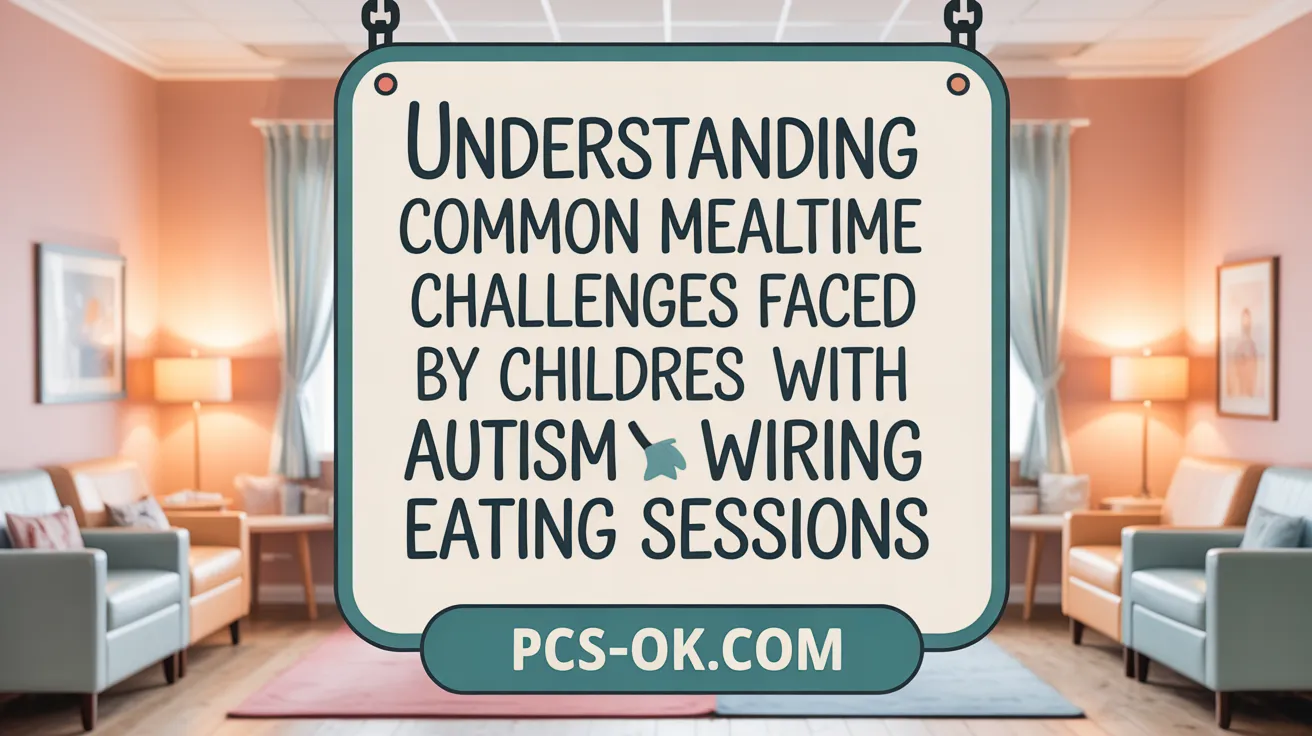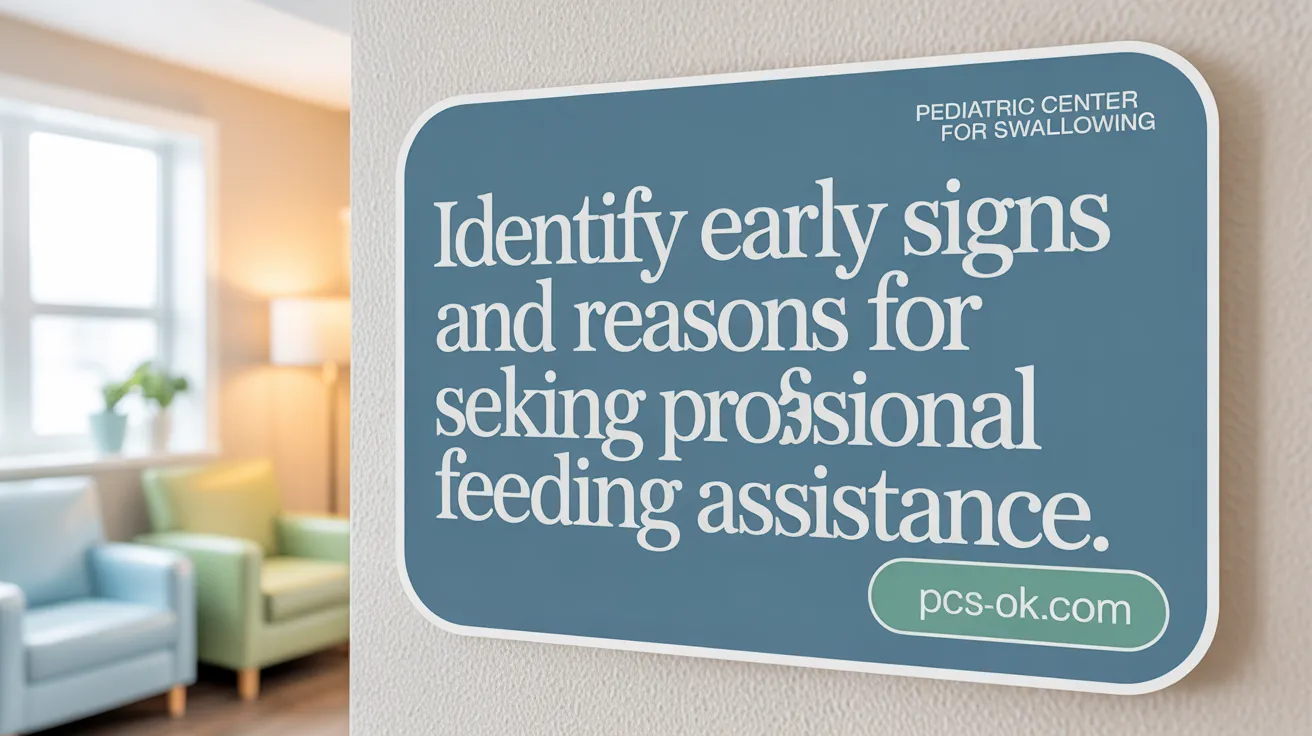How Feeding Therapy Supports Children With Autism
Understanding Feeding Challenges in Autism
Children with autism spectrum disorder (ASD) frequently face unique feeding and eating challenges ranging from sensory sensitivities to behavioral difficulties. These obstacles can significantly impact their nutritional intake, growth, and overall quality of life. Feeding therapy has emerged as a specialized intervention to address these multifaceted difficulties. This article explores how feeding therapy supports children with autism, detailing common challenges, therapeutic techniques, benefits, assessments, and the importance of professional intervention and education for caregivers and healthcare providers.
Feeding and Eating Behavior Challenges in Children with Autism

What feeding and eating behavior challenges do children with autism commonly face?
Children with autism often encounter a range of difficulties during mealtime, which can significantly affect their nutrition and overall health. These challenges include food selectivity and limited variety, where children might only accept a narrow range of foods, often specific to certain textures or colors. Many have strong preferences for particular brands or presentation styles, making meal planning complex for caregivers.
Sensory sensitivities are at the core of many feeding issues. Children may react hypersensitively to tastes, textures, smells, or appearances of food, leading to food aversion or outright rejection of certain foods. This sensitivity can cause neophobia, an intense fear of trying new foods, which further limits their diet.
Behavioral patterns such as tantrums, protracted eating times, or refusing to sit at the table are common during mealtimes. Ritualistic behaviors, like specific routines or repeated movements around eating, can make mealtime stressful and less predictable. Some children develop restrictive diets that may result in nutritional deficiencies, obesity, or gastrointestinal problems like constipation.
These difficulties are influenced by sensory processing issues, behavioral tendencies, and established routines. Because of this, addressing feeding challenges in children with autism requires personalized, multidisciplinary approaches including feeding therapy, nutritional counseling, and behavioral strategies. The goal is always to promote healthier eating habits, expand food acceptance, and create positive mealtime experiences.
How Feeding Therapy Supports Children with Autism

Overview of feeding therapy in autism
Feeding therapy is a specialized intervention designed to help children with autism spectrum disorder (ASD) address their unique feeding challenges. Autistic children often experience sensory sensitivities, oral motor delays, and behavioral issues that can make eating difficult. These difficulties may include food selectivity, gagging, or anxiety during mealtimes.
Feeding therapy employs evidence-based techniques to improve oral motor skills, expand food preferences, and create positive mealtime experiences. Conducted by trained professionals such as occupational therapists, speech-language pathologists, or dietitians, it involves personalized assessments and interventions tailored to each child’s needs.
Addressing sensory sensitivities and oral motor delays
Many children with ASD have heightened sensitivities to textures, tastes, or smells, which can lead to food refusal and limited diets. Sensory integration techniques, such as food play therapy and gradual texture exposure, help desensitize children and build their comfort with a variety of foods.
In addition, oral motor delays—such as poor jaw strength, tongue coordination, or chewing ability—are common. Therapies like the Beckman Oral Motor Approach focus on exercises to strengthen these muscles, improving chewing and swallowing. Tools like the Sequential Oral Sensory (SOS) approach introduce new foods gradually and positively, reducing resistance and anxiety.
Behavioral interventions and ABA principles
Applied Behavior Analysis (ABA) is central to many feeding therapies. ABA techniques use positive reinforcement, prompting, and systematic desensitization to encourage accepting new foods and developing better eating habits. Strategies include food chaining, where children are introduced to new foods similar to those they already accept, and shaping behaviors to promote greater independence.
Behavioral goals often involve reducing mealtime anxiety, decreasing maladaptive behaviors like refusing or tantrums, and increasing food variety. Parent training is integral, equipping caregivers with strategies to reinforce progress at home.
Role of multidisciplinary teams and parental involvement
Effective feeding therapy relies on collaboration among a team of specialists—including speech therapists, occupational therapists, dietitians, and behavioral analysts. This team conducts assessments, develops tailored plans, and monitors progress.
Parents play a vital role in therapy success. They are supported to create stress-free mealtime routines, gradually introduce new foods, and use positive reinforcement techniques. Parental involvement ensures that strategies are consistent outside therapy sessions, promoting generalization and long-term improvements.
Goals of feeding therapy including nutrition and social engagement
The main aim of feeding therapy is to enhance nutritional intake by increasing the variety and volume of foods an autistic child accepts. Reduced food selectivity can prevent nutritional deficiencies and promote better growth.
Beyond nutrition, therapy encourages positive social interactions during meals. Children learn to participate more comfortably in family meals, making mealtime a less stressful and more bonding experience.
In summary, feeding therapy offers a comprehensive, individualized approach to overcoming feeding challenges in children with autism. Through sensory, motor, behavioral techniques, and close family involvement, it helps children enjoy healthier, more varied diets and happier mealtime experiences.
Techniques and Therapeutic Approaches in Feeding Therapy

Feeding therapy for children with autism employs a variety of methods tailored to address sensory sensitivities, oral motor challenges, and behavioral issues related to eating. One prominent technique is sensory integration therapy combined with food play activities. These activities gradually desensitize children to different food textures, smells, and tastes, reducing anxiety and encouraging exploration in a playful, non-threatening environment.
Additionally, oral motor exercises are a core component, focusing on strengthening the muscles involved in chewing and swallowing. These targeted activities help improve oral motor coordination, decreasing the risk of gagging, choking, and other swallowing difficulties.
Behavioral strategies rooted in Applied Behavior Analysis (ABA) principles are also widely used. Techniques such as positive reinforcement, visual routines, and systematic desensitization encourage children to try new foods while reducing mealtime stress. Approaches like the Sequential Oral Sensory (SOS) and Food Chaining introduce new foods gradually, making acceptance more attainable and less overwhelming.
Assessment is a crucial element of feeding therapy. Practitioners conduct detailed evaluations of oral-motor skills, sensory processing, and behavioral patterns through parent reports, clinical observations, and standardized tools. These assessments help develop personalized intervention plans that respect each child’s unique needs and preferences. Ongoing monitoring allows therapists to adjust strategies over time, promoting steady progress.
The collaborative approach involving speech-language pathologists, occupational therapists, dietitians, and families ensures that interventions are comprehensive and effective. Respectful to neurodiversity, these methods focus on fostering autonomy and building positive mealtime experiences, ultimately supporting children in developing healthier eating habits and better mealtime behaviors.
Benefits and Outcomes of Feeding Therapy for Children with Autism

What are the benefits of feeding therapy for children with autism?
Feeding therapy provides significant advantages for children on the autism spectrum. One of the primary outcomes is improved nutrition and a broader food range. Many children with ASD struggle with selective eating, which can lead to nutritional deficiencies. Through specialized techniques such as food play, gradual food exposure, and positive reinforcement, therapy encourages children to accept and try new foods, supporting healthy growth.
In addition to expanding dietary repertoires, feeding therapy helps reduce mealtime anxiety and behavioral issues like oppositional behaviors or gagging. Creating a positive and calm mealtime environment is crucial, and approaches such as sensory integration and behavioral strategies play a role in reducing stress for both children and caregivers.
Another benefit is the enhancement of oral motor skills. Children often experience delays or difficulties in chewing and swallowing, which feeding therapy can address through targeted exercises like oral motor practices. As these skills improve, children become more independent in self-feeding, reducing reliance on caregivers and fostering confidence during meals.
Social interaction during mealtimes also improves, as children learn to participate in shared eating experiences, which can enhance communication and social skills.
Caregiver involvement is a vital component. Parental coaching and in-home support ensure that the progress made during therapy is maintained and generalized outside clinical settings. Overall, early intervention coupled with ongoing support can lead to better mealtime routines, healthier eating habits, and a reduction in caregiver stress.
In summary, feeding therapy for children with autism is a comprehensive approach that addresses sensory, physical, and behavioral challenges, leading to meaningful improvements in nutrition, mealtime behavior, and social interactions.
When and Why to Seek Professional Feeding Therapy for Autism

Identifying the right moment to seek feeding therapy for children with autism can significantly impact their health and development. Healthcare providers recommend professional intervention when feeding challenges are persistent, severe, or involve extreme selectivity and sensory aversions. Signs that indicate the need for evaluation include refusal to eat entire food groups, noticeable anxiety during mealtime, nutritional deficiencies, and delays in chewing or swallowing.
Early assessment by a qualified multidisciplinary team—comprising speech-language pathologists, occupational therapists, dietitians, and physicians—is crucial. They can determine underlying issues such as sensory processing difficulties, oral motor delays, or behavioral patterns that hinder normal eating.
Intervening early can prevent long-term nutritional issues and support healthy growth. Families should seek professional help promptly if mealtime difficulties cause distress, limit food intake significantly, or obstruct proper nutrition. Tailored strategies aim to improve food acceptance, reduce mealtime anxiety, and establish positive routines.
Caregivers and professionals play collaborative roles. Educating caregivers about the importance of early intervention, involving them in therapy activities, and supporting mealtime routines at home are essential components of successful feeding therapy.
Understanding that therapies like sensory integration, oral motor exercises, and behavioral techniques have proven effectiveness emphasizes the importance of personalized care. Accessible services, often covered by insurance, offer hope for improved nutrition and quality of life. Early, professional, multidisciplinary intervention is a pivotal step towards developing healthier eating habits and ensuring the overall well-being of children with autism.
Feeding Therapy: A Vital Component in Autism Care
Feeding therapy plays a crucial role in supporting children with autism by addressing complex feeding challenges rooted in sensory sensitivities, oral motor skills, and behavioral patterns. Through individualized, multidisciplinary approaches that blend sensory integration, behavioral techniques, and oral motor training, feeding therapy improves nutrition, reduces mealtime anxiety, and fosters positive eating experiences. Early intervention and caregiver education are essential to maximize benefits and ensure lasting progress. With ongoing professional guidance and family support, children with autism can develop healthier eating habits and enjoy more relaxed, enriching mealtime interactions, significantly enhancing their overall well-being and development.
References
- Nutrition and Feeding Therapy for Children on the Autism …
- Feeding Therapy for Autism
- ABA Feeding Therapy Program
- Feeding Therapies for Children With Autism Spectrum …
- Common Challenges and Solutions in Feeding Therapy for …
- The Efficacy of the Global Intensive Feeding Therapy on …
- How Feeding Therapy Helps Children with Autism …
- ABA Feeding Therapy for Autistic Children
- Feeding Therapy for Children with Autism
